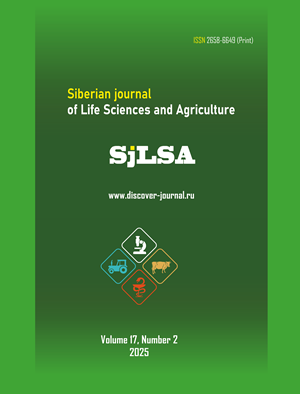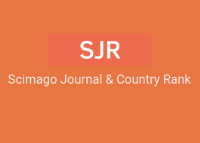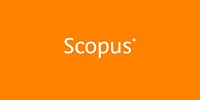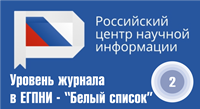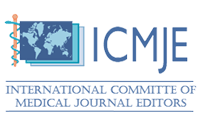Афидофаги Черноморского побережья Краснодарского края и их роль в регулировании численности вредителей
Аннотация
Обоснование. Климатическое и флористическое разнообразие биоценоза Лазаревского района города-курорта Сочи послужило формированию в регионе уникального видового состава палеарктической, субтропической и тропической энтомофауны. Сформировался устойчивый симбиоз комплекса тлей и их природных хищников и паразитов. В период быстрого нарастания численности фитофагов биоагентами контроля становились личинки сирфид, хризоп (до 77 яиц в яйцекладке), личинки и имаго кокцинеллид (до 70 личинок и 4 имаго на растение), личинки галлицы афидимизы (до 17 особей на лист).
Цель: изучение афидофагов Черноморского побережья Краснодарского края и их роль в регулировании численности вредителей в агроценозах Лазаревского района г. Сочи.
Материалы и методы. Фитосанитарное обследование проводилось в весенне-летний период - 4 раза в месяц, в осенне-зимний - 2 раза в месяц. Выбор даты учетов в вегетационный период определяли появлением первых особей фитофагов после зимовки. Идентификацию выявленных фитофагов, проводили в лабораториях станции по общепринятым методиками (Маршаков В. Г., 1985). Математическая обработка данных осуществлялась с помощью MS Excel. В естественных и искусственных биоценозах наибольшую эффективность показали кокцинеллиды.
Результаты. Впервые в 2021-2024 гг. проведена оценка роли афидофагов в регулировании численности вредителей в агроценозах Черноморского побережья Краснодарского края. Средняя биологическая эффективность энтомофагов составила 80 %. В неконтролируемых условиях открытого грунта лучшим биоагентом контроля тлей выступила хармония при эффективности в 95 %. Высокие результаты хищничества показали аборигенные хищники-полифаги макролофус и дицифус. Их биологическая эффективность в закрытом грунте составила в среднем 70 % при соотношении хищник:жертва 1:30. Применение лабораторных популяций специализированных паразитов лизифлебуса и афидиуса в контролируемых условиях закрытого грунта показали уровень паразитирования до 84 %.
Заключение. Выявлена недостаточная эффективность природных афидофагов при их применении в качестве моно-агента биоконтроля тли. Значительно более высокие результаты показало единовременное применение комплекса афидофагов, состоящего из кокцинеллид, сирфид, галлицы афидимизы, макролофуса и дицифуса. В результате исследований токсичности наиболее распространенных инсектицидов и фунгицидов в отношении энтомофагов выявлено негативное влияние некоторых препаратов на дальнейшее развитие насекомых. Зафиксировано снижение количества окуклившихся личинок от 34,7 % до 37,9 % и вылетевших имаго хармонии от 29,9 % до 33,6 %. Наиболее эффективными препаратами определены препараты на основе выявленных в регионе энтомопатогенных грибов Beauveria и Lecanicillium, показавшие эффективность до 90 %.
Информация о спонсорстве. Работа проведена по государственному заданию Министерства науки и высшего образования РФ в рамках НИР по теме № FGRN-2025-0005.
EDN: ZTSHVA
Скачивания
Литература
Агасьева, И. С., Исмаилов, В. Я., Нефедова, М. В. и др. (2021). Оценка эффективности энтомофагов и акарифагов в системах биологической защиты яблоневого сада. Достижения науки и техники АПК, 35(2), 47-51. https://doi.org/10.24411/0235-2451-2021-10207 EDN: https://elibrary.ru/ofxpxm
Белякова, Н. А., Павлюшин, В. А. (2023). Скрининг биоресурсов насекомых и клещей для биологического контроля вредителей в защищенном грунте. Вестник защиты растений, 106(1), 49-70. https://doi.org/10.31993/2308-6459-2023-106-1-15533 EDN: https://elibrary.ru/ttwrxa
Игнатьева, Т. Н., Кашутина, Е. В., Бугаева, Л. Н. (2021). Leis dimidiata Fabr. в защите овощных культур закрытого грунта от комплекса тлей. Труды Кубанского государственного аграрного университета, (93), 188-193. https://doi.org/10.21515/1999-1703-93-188-193 EDN: https://elibrary.ru/oxmvsm
Кашутина, Е. В., Бугаева, Л. Н., Хетагурова, Е. В., Игнатьева, Т. Н., Ясюк, Л. В. (2023). Антропогенная трансформация фитосанитарной обстановки биоценозов Лазаревского района г. Сочи. Достижения науки и техники АПК, 37(5), 58-65. https://doi.org/10.53859/02352451_2023_37_5_58 EDN: https://elibrary.ru/txvrfj
Кашутина, Е. В., Бугаева, Л. Н., Игнатьева, Т. Н., Хейшхо, И. В. (2021). Экологически безопасная защита чайных плантаций юга России. Юг России: экология, развитие, 16(4), 27-36. https://doi.org/10.18470/1992-1098-2021-4-27-36 EDN: https://elibrary.ru/utibcf
Литвинова, С. В., Рак, Н. С. (2021). Природные афидофаги в агроценозах дендрологических коллекций Полярно-альпийского ботанического сада. Труды Кольского научного центра РАН, 12(6), 328-333. https://doi.org/10.37614/2307-5252.2021.6.12.9.047 EDN: https://elibrary.ru/pyaoqp
Минияров, Ф. Т., Павлов, С. И., Яицкий, А. С. (2019). Питание семиточечной коровки Coccinella septempunctata L. (Coleoptera, Coccinelidae) на различных стадиях жизненного цикла. Самарский научный вестник, 8(2), 32-38. https://doi.org/10.17816/snv201982106 EDN: https://elibrary.ru/xhopok
Пушня, М. В., Родионова, Е. Ю., Снесарева, В. Я., Исмаилов, В. Я. (2020). Регулирующая роль энтомофагов доминантных вредителей озимой пшеницы в системах органического земледелия. Достижения науки и техники АПК, 34(7), 49-54. https://doi.org/10.24411/0235-2451-2020-10708 EDN: https://elibrary.ru/rsssxu
Тураева, С. М., Исмаилова, Д. С., Муратова, С. Х., Аллокулова, С. Б. (2021). Инсектицидная активность алкилпроизводных 5-(п-Аминофенил)-1,3,4-оксадиазол-2-тиона. Siberian Journal of Life Sciences and Agriculture, 13(3), 74-88. https://doi.org/10.12731/2658-6649-2021-13-3-74-88 EDN: https://elibrary.ru/cepczy
Aparicio, Y., et al. (2021). Can Insectary Plants Enhance the Presence of Natural Enemies of the Green Peach Aphid (Hemiptera: Aphididae) in Mediterranean Peach Orchards? Journal of Economic Entomology, 114(2), 784-793. https://doi.org/10.1093/jee/toaa298 EDN: https://elibrary.ru/musiea
Boulanger, F. X., Jandricic, S., Bolckmans, K., Wäckers, F. L., & Pekas, A. (2019). Optimizing aphid biocontrol with the predator Aphidoletes aphidimyza, based on biology and ecology. Pest Management Science, 75(6), 1479-1493. https://doi.org/10.1002/ps.5270
Dalal, Pappu Lal, Akhter Hussain, Sanju Piploda, & Heera Kumari. (2024). Feeding and Biotic Potential of Coccinellid Predators on Coriander Aphid. Journal of Experimental Agriculture International, 46(7), 419-423. https://doi.org/10.9734/jeai/2024/v46i72595 EDN: https://elibrary.ru/yeuxwt
Dunn, L., Lequerica, M., Reid, C. R., & Latty, T. (2020). Dual ecosystem services of syrphid flies (Diptera: Syrphidae): pollinators and biological control agents. Pest Management Science, 76(6), 1973-1979. https://doi.org/10.1002/ps.5807 EDN: https://elibrary.ru/gpiutr
Holly, W. A., Nathan, H. P., Hoebeke, E. R., Thomas, K. P., & Salom, S. M. (2019). Predators associated with the pine bark adelgid (Hemiptera: Adelgidae), a native insect in Appalachian forests, United States of America, in its southern range. The Canadian Entomologist, 151(1), 73-84. https://doi.org/10.4039/tce.2018.53 EDN: https://elibrary.ru/neqkym
Honěk, A., Brabec, M., Martinkova, Z., et al. (2019). Factors determining local and seasonal variation in abundance of Harmonia axyridis (Coleoptera: Coccinellidae) in Central Europe. European Journal of Entomology, 116, 93-103. https://doi.org/10.14411/eje.2019.011 EDN: https://elibrary.ru/zskces
Liu, J.-F., Wang, X.-Q., Beggs, J. R., Ou, H.-D., Yu, X.-F., Shen, X.-X., & Yang, M.-F. (2020). Consuming Parasitized Aphids Alters the Life History and Decreases Predation Rate of Aphid Predator. Insects, 11(12), 889. https://doi.org/10.3390/insects11120889 EDN: https://elibrary.ru/cezzwo
Kaсar, G. (2019). Bioecologies of pests, natural enemies in apple orchards of Seben (Bolu). Uluslararasi Tarim Ve Yaban Hayati Bilimleri Dergisi, 5(2), 286-291. https://doi.org/10.24180/ijaws.605651
Lian, Y., Wang, A., Peng, S., Jia, J., Yang, X., Li, J., Yang, S., Zheng, R., & Zhou, S. (2022). Potential global distribution area projections of the aphid Lipaphis erysimi and its predator Eupeodes corollae in the context of climate change. Frontiers in Plant Science, 13:1019693. https://doi.org/10.3389/fpls.2022.1019693 EDN: https://elibrary.ru/jwtrga
Lin, Q. C., Zhai, Y. F., Chen, H., Yin, Y. Y., Sun, M., Yu, Y., & Zheng, L. (2017). Predatory capacity of Aphidoletes aphidimyza (Rondani). Chinese Journal of Biological Control, 33, 171-175.
Singh, P., et al. (2020). Larval feeding capacity and pollination efficiency of the aphidophagous syrphids, Eupeodes frequens (Matsumura) and Episyrphus balteatus (De Geer) (Diptera: Syrphidae) on the cabbage aphid (Brevicoryne brassicae L.) (Homoptera: Aphididae) on mustard crop. Egyptian Journal of Biological Pest Control, 30(1), 1-9. https://doi.org/10.1186/s41938-020-00300-6 EDN: https://elibrary.ru/ajfkzo
Shaukat, M. A. (2018). Feeding behaviour and life durations of Chrysoperla carnea (Stephens) (Neuroptera: Chrysopidae) feeding on a variety of hosts. Journal of Entomology and Zoology Studies, 6(1), 691-697.
Zovko, M., Zivkovic, I. P., Lesic, V. L., & Lemic, D. (2021). Effect of Climate Change on Introduced and Native Agricultural Invasive Insect Pests in Europe. Insects, 12(11), 985. https://doi.org/10.3390/insects12110985 EDN: https://elibrary.ru/iodgaj
References
Agasieva, I. S., Ismailov, V. Ya., Nefedova, M. V., et al. (2021). Evaluation of the effectiveness of entomophages and acariphages in apple orchard biological protection systems. Achievements of Science and Technology of Agroindustrial Complex, 35(2), 47-51. https://doi.org/10.24411/0235-2451-2021-10207 EDN: https://elibrary.ru/ofxpxm
Belyakova, N. A., Pavlyushin, V. A. (2023). Screening of insect and mite bioresources for biological control of pests in protected ground. Plant Protection Bulletin, 106(1), 49-70. https://doi.org/10.31993/2308-6459-2023-106-1-15533 EDN: https://elibrary.ru/ttwrxa
Ignatye, T. N., Kashutina, E. V., Bugaeva, L. N. (2021). Leis dimidiata Fabr. in the protection of greenhouse vegetable crops from aphid complex. Proceedings of the Kuban State Agrarian University, (93), 188-193. https://doi.org/10.21515/1999-1703-93-188-193 EDN: https://elibrary.ru/oxmvsm
Kashutina, E. V., Bugaeva, L. N., Khetagurova, E. V., Ignatye, T. N., Yasuk, L. V. (2023). Anthropogenic transformation of the phytosanitary environment of biocenoses of the Lazarevsky district of Sochi. Achievements of Science and Technology of Agroindustrial Complex, 37(5), 58-65. https://doi.org/10.53859/02352451_2023_37_5_58 EDN: https://elibrary.ru/txvrfj
Kashutina, E. V., Bugaeva, L. N., Ignatye, T. N., Kheyshkho, I. V. (2021). Environmentally safe protection of tea plantations in the south of Russia. South of Russia: Ecology, Development, 16(4), 27-36. https://doi.org/10.18470/1992-1098-2021-4-27-36 EDN: https://elibrary.ru/utibcf
Litvinova, S. V., Rak, N. S. (2021). Natural aphidophages in agrocenoses of dendrological collections of the Polar-Alpine Botanical Garden. Proceedings of the Kola Scientific Center of the Russian Academy of Sciences, 12(6), 328-333. https://doi.org/10.37614/2307-5252.2021.6.12.9.047 EDN: https://elibrary.ru/pyaoqp
Miniyarov, F. T., Pavlov, S. I., Yatsik, A. S. (2019). Feeding of the seven-spotted ladybug Coccinella septempunctata L. (Coleoptera, Coccinelidae) at different stages of the life cycle. Samara Scientific Bulletin, 8(2), 32-38. https://doi.org/10.17816/snv201982106 EDN: https://elibrary.ru/xhopok
Pushnya, M. V., Rodionova, E. Yu., Snesareva, V. Ya., Ismailov, V. Ya. (2020). Regulating role of entomophages of dominant pests of winter wheat in organic farming systems. Achievements of Science and Technology of Agroindustrial Complex, 34(7), 49-54. https://doi.org/10.24411/0235-2451-2020-10708 EDN: https://elibrary.ru/rsssxu
Turaeva, S. M., Ismailova, D. S., Muratova, S. Kh., Allokulova, S. B. (2021). Insecticidal activity of alkyl derivatives of 5-(p-aminophenyl)-1,3,4-oxadiazole-2-thione. Siberian Journal of Life Sciences and Agriculture, 13(3), 74-88. https://doi.org/10.12731/2658-6649-2021-13-3-74-88 EDN: https://elibrary.ru/cepczy
Aparicio, Y., et al. (2021). Can Insectary Plants Enhance the Presence of Natural Enemies of the Green Peach Aphid (Hemiptera: Aphididae) in Mediterranean Peach Orchards? Journal of Economic Entomology, 114(2), 784-793. https://doi.org/10.1093/jee/toaa298 EDN: https://elibrary.ru/musiea
Boulanger, F. X., Jandricic, S., Bolckmans, K., Wäckers, F. L., & Pekas, A. (2019). Optimizing aphid biocontrol with the predator Aphidoletes aphidimyza, based on biology and ecology. Pest Management Science, 75(6), 1479-1493. https://doi.org/10.1002/ps.5270
Dalal, Pappu Lal, Akhter Hussain, Sanju Piploda, & Heera Kumari. (2024). Feeding and Biotic Potential of Coccinellid Predators on Coriander Aphid. Journal of Experimental Agriculture International, 46(7), 419-423. https://doi.org/10.9734/jeai/2024/v46i72595 EDN: https://elibrary.ru/yeuxwt
Dunn, L., Lequerica, M., Reid, C. R., & Latty, T. (2020). Dual ecosystem services of syrphid flies (Diptera: Syrphidae): pollinators and biological control agents. Pest Management Science, 76(6), 1973-1979. https://doi.org/10.1002/ps.5807 EDN: https://elibrary.ru/gpiutr
Holly, W. A., Nathan, H. P., Hoebeke, E. R., Thomas, K. P., & Salom, S. M. (2019). Predators associated with the pine bark adelgid (Hemiptera: Adelgidae), a native insect in Appalachian forests, United States of America, in its southern range. The Canadian Entomologist, 151(1), 73-84. https://doi.org/10.4039/tce.2018.53 EDN: https://elibrary.ru/neqkym
Honěk, A., Brabec, M., Martinkova, Z., et al. (2019). Factors determining local and seasonal variation in abundance of Harmonia axyridis (Coleoptera: Coccinellidae) in Central Europe. European Journal of Entomology, 116, 93-103. https://doi.org/10.14411/eje.2019.011 EDN: https://elibrary.ru/zskces
Liu, J.-F., Wang, X.-Q., Beggs, J. R., Ou, H.-D., Yu, X.-F., Shen, X.-X., & Yang, M.-F. (2020). Consuming Parasitized Aphids Alters the Life History and Decreases Predation Rate of Aphid Predator. Insects, 11(12), 889. https://doi.org/10.3390/insects11120889 EDN: https://elibrary.ru/cezzwo
Kaсar, G. (2019). Bioecologies of pests, natural enemies in apple orchards of Seben (Bolu). Uluslararasi Tarim Ve Yaban Hayati Bilimleri Dergisi, 5(2), 286-291. https://doi.org/10.24180/ijaws.605651
Lian, Y., Wang, A., Peng, S., Jia, J., Yang, X., Li, J., Yang, S., Zheng, R., & Zhou, S. (2022). Potential global distribution area projections of the aphid Lipaphis erysimi and its predator Eupeodes corollae in the context of climate change. Frontiers in Plant Science, 13:1019693. https://doi.org/10.3389/fpls.2022.1019693 EDN: https://elibrary.ru/jwtrga
Lin, Q. C., Zhai, Y. F., Chen, H., Yin, Y. Y., Sun, M., Yu, Y., & Zheng, L. (2017). Predatory capacity of Aphidoletes aphidimyza (Rondani). Chinese Journal of Biological Control, 33, 171-175.
Singh, P., et al. (2020). Larval feeding capacity and pollination efficiency of the aphidophagous syrphids, Eupeodes frequens (Matsumura) and Episyrphus balteatus (De Geer) (Diptera: Syrphidae) on the cabbage aphid (Brevicoryne brassicae L.) (Homoptera: Aphididae) on mustard crop. Egyptian Journal of Biological Pest Control, 30(1), 1-9. https://doi.org/10.1186/s41938-020-00300-6 EDN: https://elibrary.ru/ajfkzo
Shaukat, M. A. (2018). Feeding behaviour and life durations of Chrysoperla carnea (Stephens) (Neuroptera: Chrysopidae) feeding on a variety of hosts. Journal of Entomology and Zoology Studies, 6(1), 691-697.
Zovko, M., Zivkovic, I. P., Lesic, V. L., & Lemic, D. (2021). Effect of Climate Change on Introduced and Native Agricultural Invasive Insect Pests in Europe. Insects, 12(11), 985. https://doi.org/10.3390/insects12110985 EDN: https://elibrary.ru/iodgaj
Copyright (c) 2025 Evgeniya V. Kashutina, Ludmila N. Bugaeva, Tatuna N. Ignatieva

Это произведение доступно по лицензии Creative Commons «Attribution-NonCommercial-NoDerivatives» («Атрибуция — Некоммерческое использование — Без производных произведений») 4.0 Всемирная.

